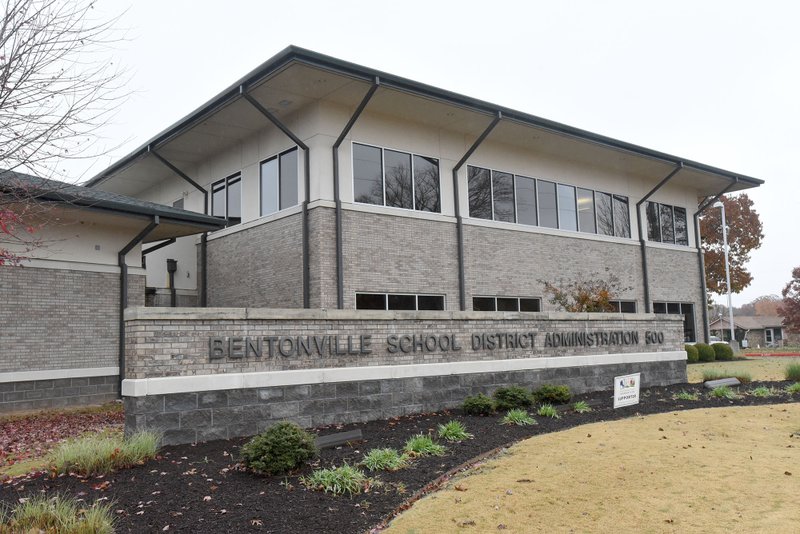One of the trickiest phases of parenting is the graduated, years-long handoff of an adolescent into adulthood.
Defining that phase -- when it begins and when it ends (does it ever really end?) -- is necessarily customized, as unique for each family as each child who must journey through it. Raising kids right, with boundaries to protect them, is an act of love. As they get older, the tough part for parents isn't saying "no." It's telling a maturing teenager "I trust you to make your own decision on this."
Our public schools have a role in this, too, because parents ask them to participate in the raising of that child every time they drop their kids off or put them on the big yellow bus. Parents expect, or should, their school leaders to be their partners, building up students with knowledge and increasing capacity for responsible decision-making.
Sometimes, as you might imagine, a school system's efforts to provide a broad education to hundreds or thousands of kids can create differences of opinion as to what's appropriate. Acknowledging that shared role in the formation of young minds, it's easy to understand disagreements might arise.
That, supposedly, was at the heart of complaints brought by a dozen parents and a political candidate before the Bentonville School Board last week. It was the latest episode of attempted book-banning, a fairly common flare-up involving public school libraries.
How many books does it take in a library collection before a debate over content can become heated? Our estimation is it only requires two, unless they're duplicates of the same book. Having two different books is all it takes for reasonable people to disagree over what a library should have on its shelves. Throw in a few unreasonable people and eruptions of literary quarreling are quite predictable.
In Bentonville, the clash looked a lot like other book banning attempts around the nation: Pluck out passages from a few books -- the more shocking, the better for making people squirm -- and declare librarians and the school districts that employ them to be merchants of literary porn.
Remove the books, the complainants declare. Save the children, they imply.
Lest anyone be mistaken, let's be clear that the books involved were available to high school students, not being read out loud to kindergartners as they shaped Play-Doh into works of art a parent -- and perhaps only a parent -- could love.
Books, whether fiction or nonfiction, reflect the world in which we all live, so yes, they will sometimes contain descriptions of repugnant behaviors, horribly tragic circumstances and the worst of humanity. And in many cases, those same books tell stories of people triumphing over such conditions or at least coming to terms with the atrocities human beings can commit against each other.
Having even a handful of parents -- and a candidate for political office -- standing up to read the most difficult paragraphs of heart-wrenching stories is undoubtedly enough to set some school boards reeling, ready to clear library shelves. Thankfully, Bentonville school board members didn't take the bait, even if they did find the cherry-picked content uncomfortable.
But guess what? In a high school library, shelves shouldn't be lined with Barney the Dinosaur books. High school libraries should offer challenging but meaningful volumes for students who want to check them out. Books considered literary masterpieces sometimes contain offensive material that fits the telling of those particular stories.
Bentonville School Board President Eric White had full grasp of the school district's responsibilities and the great care school district librarians take in what materials are made available. The four books discussed by the offended parents -- and a candidate for political office -- had been checked out fewer than 10 times since 2017, White said. During the same period, the district has graduated about 10,000 seniors.
"It's pretty clear the books are more popular to try to divide our community than they were with the kids," White said. He also said it's likely no coincidence the flare-up began at the same time as the 2022 political campaign season.
The school district has policies that allow parents to challenge reading materials, including a request that the materials be removed from library shelves. That policy permits parents to give schools a list of books their children will not be allowed to read.
It's telling that the school district has had no parents engage in that process before this particular group made a splash with their book ban campaign.
Without question, school districts cannot replace parents in making decisions of what's best for each child. Bentonville's policy reinforces the parents' capacity to make responsible decisions for their own children. What it does not do is permit a small group of parents -- and a candidate for political office -- to extend the boundaries they've set for their own children to the thousands of students accessing materials at school libraries. That kind of bibliographic cancel culture is counter to the very concept of public education.
Did we mention the involvement of a political candidate, one who doesn't live in the Bentonville School District but will be campaigning there? We have no reason to doubt the sincerity of the parents who spoke to the board, but the episode also has all the markings of a political stunt.
Kudos to the Bentonville School Board for refusing to take part in it.
What’s the point?
The Bentonville School Board responded admirably to a campaign to ban books from high school libraries.

